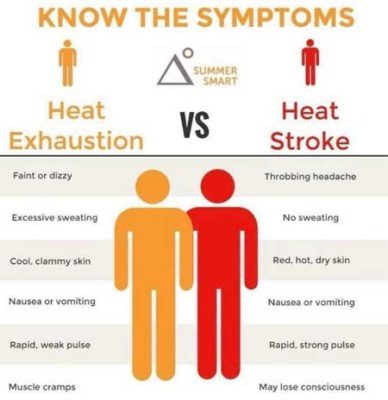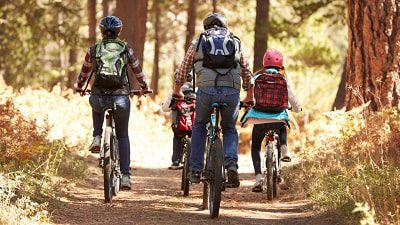 Day 67 of (un?) Lockdown
Day 67 of (un?) Lockdown
Day 67, several weeks into unprecedented weather and virus, HMG has issued a raft of information to prepare for a heatwave. Some of the key elements of this are summarised below with a link to the full advice. Other topics are:
Heatwave

As part of its’ daily advice output, our government have today issued quite a lot about risks of heatwaves. Some are particularly heightened during the current COVID-19 pandemic. There are normally around 2,000 heat-related deaths per year in the UK. The past decade was the warmest on record and the past five years were the warmest in the 170-year series. They advise the following most significant impacts of a heatwave on health:
- A range of mild to severe health impacts can result from exposure to high temperatures.
- There are specific heat-related health effects and illnesses including:
- Heat cramps, heat rash, heat oedema, heat syncope, heat exhaustion, heatstroke.
- increased numbers of admissions to hospital and consultations with GPs, and additional demands placed on the emergency services.
- fatalities, particularly among the vulnerable and older people.
- The main causes of illness and death during a heatwave are exacerbation of respiratory and cardiovascular illness.
Heat & COVID-19
COVID-19 amplifies the risks of hot weather. It is critical that actions to prevent health harms from high temperatures continue, with necessary adaptations in line with coronavirus guidance to keep everyone safe. They see the following material risks:
- Potential increase in adverse outcomes amongst the same population groups affected by both high temperatures and COVID-19 For example, older people and those with comorbidities such as cardio-respiratory diseases.
- Increase in exposure to indoor overheating due to COVID-19 restrictions. For example, people who have been advised to stay at home.
- Reduced access to cool public spaces for respite due to COVID-19 restrictions.
- System-level risks related to concurrency of impacts For example, increased demand on social care services to prevent both heat and COVID19 related harms.
Individual Risk Factors
We still have much to learn about how coronavirus (COVID-19) affects the body, but both heat and COVID-19 infections put a strain on the heart and lungs, the kidneys and are linked with inflammation in the body. Clinical vulnerabilities that have been linked with worse outcomes from COVID-19 that are also risks for heat-related harms are:
- high blood pressure.
- chronic obstructive pulmonary disease.
- heart and lung conditions (cardiovascular disease).
- conditions that affect the flow of blood in the brain (cerebrovascular disease).
- kidney disease.
Environmental Risk factors
Environmental risk factors for increased exposure to heat1 include:
- Living in urban areas
This is due to the urban heat island effect and is important for those with limited green space nearby - Dwelling types prone to overheating such as south-facing top-floor flats.
- 1 in 5 homes in England are prone to overheating
- Few (~ 1-3%) have air conditioning
- Local air pollution (i.e. particulate matter) may exacerbate the health impacts of heat.
Read all of the documents here.
 ECC’s 30:30 Challenge
ECC’s 30:30 Challenge
Essex has officially launched a countywide campaign encouraging Essex residents to get moving this June. Now in its third year, the 30:30 Essex movement is to encourage every Essex resident to take part in 30 minutes of movement every day in the month of June.
It is proven that an active lifestyle and regular exercise provides a range of benefits, such as improved energy and mental health as well as reducing the risk of heart disease and type 2 diabetes.
Sedentary
The current global situation has caused many Essex individuals to become more sedentary and less mobile, or less motivated due to being at home more than we were. The Active Essex led campaign hopes that June will become the motivation to get up and get moving.
Previous 30:30 Essex participant Adele Bovington, said:
Last year I used my 30 minutes each day to try as many new activities as I could. My children and I can’t wait to get started again this year! We have been enjoying the Keep Essex Active channel and can’t wait to keep trying new sessions.
Join In
Essex residents can join the movement by following Active Essex on Facebook, Twitter or Instagram, joining the Keep Essex Active community group on Facebook and signing up to receive a resource pack at www.3030essex.com to help keep you motivated and inspired and it even includes a selfie prop pack!
Azeem Akhtar, Chairman of Active Essex, said:
Now in its third year, the 30:30 Essex movement is back and we have already had fantastic support from local organisations, workplaces and individuals who want to use June as their motivation to keep moving. Especially during these difficult times, we know that movement and physical activity can all help physical and mental wellbeing. We look forward to having Essex get behind the campaign to together, keep Essex active.
 ECC’s Response to COVID-19 in numbers
ECC’s Response to COVID-19 in numbers
Here are some key facts about their work so far:
- More than £260 milllion has been paid in grants to Essex businesses.
- 21,000 businesses in Essex have received funding.
- 237 businesses have been checked for compliance with lockdown regulations.
- 500,000 items of PPE have been allocated to people and businesses around Essex.
- 8 country parks in Essex have safely reopened.
- 5,805 residents have registered for support with the Essex Welfare Service.
- 3,009 residents have registered to volunteer with the Essex Welfare Service.
- 1,304 emergency food deliveries have been made to people in need.
- 430 schools have remained open for children who are vulnerable or whose parents are essential workers.
- 1,222 vulnerable children have attended school during the pandemic, while 4,404 children in total have attended school.
- 15 recycling centres are operational again for essential items.
- 56,450 views of Essex Libraries’ Facebook videos and 7,956 views on their YouTube videos.
- Nearly 119,000 people have visited our coronavirus hub for information and advice.
- They’ve reached 3.8 million people on Facebook and received 78,000 likes, shares and comments.
- Their contact centre has taken 42,271 calls from residents.
Something Else
The Original Heatwave Song
Corny Heatwave Joke
 Heatwave Trivia Quiz
Heatwave Trivia Quiz
This BBC mini-quiz has a number of interesting questions on the topic of Heatwaves:






